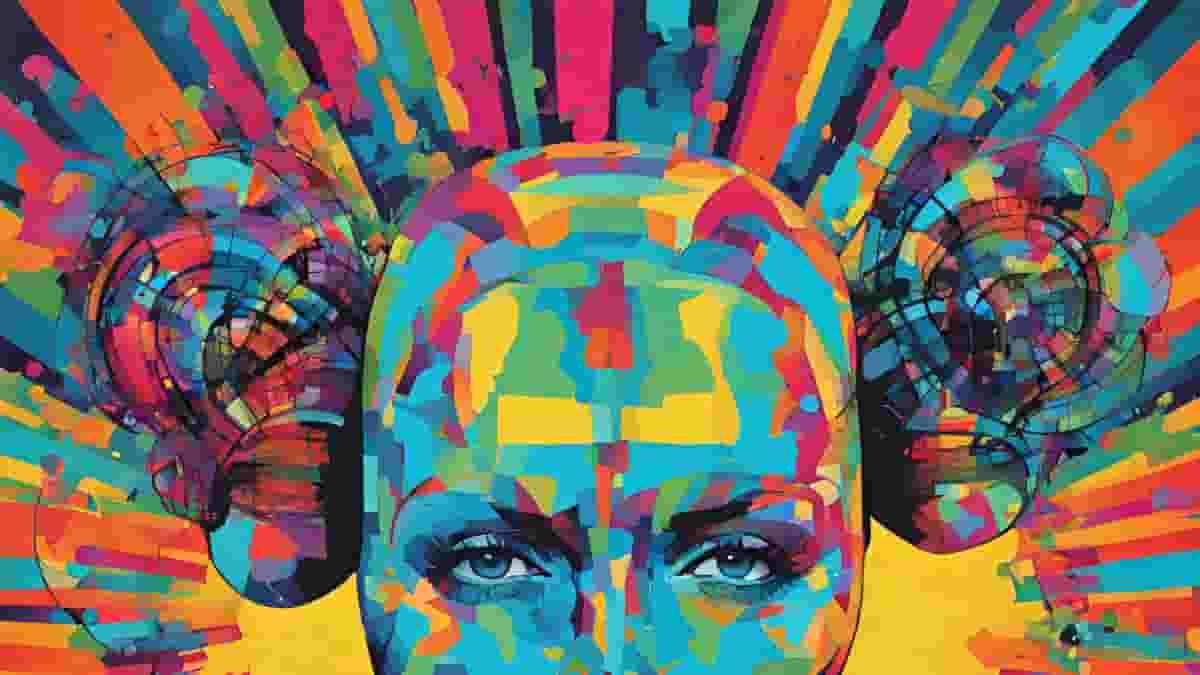Dopamine release in the human brain plays an important role in encoding both reward and punishment prediction mistakes, according to a new study from Wake Forest University School of Medicine. Dopamine participates in the process of learning from both happy and bad events, allowing the brain to alter and adapt its behavior based on the results of these experiences.
“Previously, research has shown that dopamine plays an important role in how animals learn from ‘rewarding’ (and possibly ‘punishing’) experiences. But, little work has been done to directly assess what dopamine does on fast timescales in the human brain,”
said Kenneth T. Kishida, Ph.D., associate professor of physiology and pharmacology and neurosurgery at Wake Forest University School of Medicine.
This is the first human study to look at how dopamine encodes rewards and punishments, Kishida said, as well as whether dopamine reflects the ‘optimal’ teaching signal used in today’s most advanced artificial intelligence research.
Fast-scan Cyclic Voltammetry
What occurs in our brains when we learn from both positive and negative experiences? Scientists are researching dopamine to shed light on the issue and better comprehend human behavior and decision-making.

Credit: Science Advances, 2023; 9 (48) DOI: 10.1126/sciadv.adi4927
Dopamine is a neurotransmitter produced in the brain that acts as a chemical messenger, allowing nerve cells in the brain and the body to communicate with one another. It participates in activities including movement, cognition, and learning. While dopamine is most commonly associated with good feelings, scientists are also investigating its impact in negative ones.
For this study, researchers on Kishida’s team utilized fast-scan cyclic voltammetry, an electrochemical technique, paired with machine learning, to detect and measure dopamine levels in real-time (i.e., 10 measurements per second). This technology, however, is difficult and can only be used during invasive procedures such as deep-brain stimulation (DBS) brain surgery. DBS is frequently used to treat Parkinson’s disease, essential tremor, obsessive-compulsive disorder, and epilepsy.
Kishida’s team worked with Atrium Health Wake Forest Baptist neurosurgeons Stephen B. Tatter, M.D., and Adrian W. Laxton, M.D., both of whom are also faculty members in the Department of Neurosurgery at Wake Forest University School of Medicine, to insert a carbon fiber microelectrode deep into the brains of three participants scheduled to receive DBS to treat essential tremor at Atrium Health Wake Forest Baptist Medical Center.
Independent Positive and Negative Pathways
In the operation room, the participants engaged in a basic computer game while they were conscious. Dopamine levels were monitored in the striatum during the game, which is a region of the brain crucial for thought processes, judgment calls, and coordinated movement.
Players’ decisions during the game resulted in actual monetary gains or losses, which either rewarded or punished them. There were three phases to the game, and players had to learn from both positive and negative input to maximize prizes and minimize penalties. Every 100 milliseconds, dopamine levels were continuously monitored during all three of the game’s phases.
“We found that dopamine not only plays a role in signaling both positive and negative experiences in the brain, but it seems to do so in a way that is optimal when trying to learn from those outcomes. What was also interesting, is that it seems like there may be independent pathways in the brain that separately engage the dopamine system for rewarding versus punishing experiences. Our results reveal a surprising result that these two pathways may encode rewarding and punishing experiences on slightly shifted timescales separated by only 200 to 400 milliseconds in time,”
Kishida said.
Kishida believes that this degree of understanding will lead to a deeper knowledge of how the dopamine system is affected in persons suffering from psychiatric and neurological illnesses. More research, according to Kishida, is needed to understand how dopamine signalling is affected in psychiatric and neurological illnesses.
“Traditionally, dopamine is often referred to as ‘the pleasure neurotransmitter. However, our work provides evidence that this is not the way to think about dopamine. Instead, dopamine is a crucial part of a sophisticated system that teaches our brain and guides our behavior,”
Kishida said.
The discovery that dopamine is also involved in teaching our brain about punishing experiences is significant and may open up new avenues of research to help us better understand the mechanisms underlying depression, addiction, and other psychiatric and neurological disorders.
Abstract
In the mammalian brain, midbrain dopamine neuron activity is hypothesized to encode reward prediction errors that promote learning and guide behavior by causing rapid changes in dopamine levels in target brain regions. This hypothesis (and alternatives regarding dopamine’s role in punishment-learning) has limited direct evidence in humans. We report intracranial, subsecond measurements of dopamine release in human striatum measured, while volunteers (i.e., patients undergoing deep brain stimulation surgery) performed a probabilistic reward and punishment learning choice task designed to test whether dopamine release encodes only reward prediction errors or whether dopamine release may also encode adaptive punishment learning signals. Results demonstrate that extracellular dopamine levels can encode both reward and punishment prediction errors within distinct time intervals via independent valence-specific pathways in the human brain.
Reference:
- L. Paul Sands, Angela Jiang, Brittany Liebenow, Emily DiMarco, Adrian W. Laxton, Stephen B. Tatter, P. Read Montague, Kenneth T. Kishida. Subsecond fluctuations in extracellular dopamine encode reward and punishment prediction errors in humans. Science Advances, 2023; 9 (48) DOI: 10.1126/sciadv.adi4927
